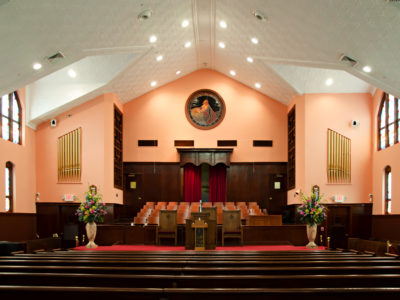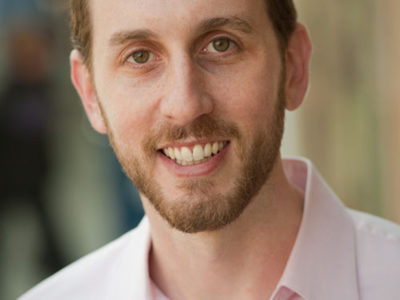What Would King Do?
California “YIGBY” Bill Could Empower Churches To Add Affordable Housing

As Martin Luther King day ends here on the west coast, the role of churches and religious institutions looms large. King’s activism arose out of his spiritual commitment. And in California, it looms large in a surprising way concerning the built environment.
Land use is (in)famous for its acronyms: NIMBY, BANANA (Build Absolutely Nothing Anywhere Near Anybody), NOPE (Not On Planet Earth), and YIMBY (Yes In My Backward). Now we have YIGBY: Yes In God’s Back Yard.
Churches and synagogues expanded rapidly in the 50’s and early 60’s: as David E. Campbell and Robert Putnam explained in their magisterial work, American Grace: How Religion Divides and Unites Us, religious attendance was far higher during that time than it is today, and congregations planned for ongoing high attendance. Then, when attendance dropped sharply for the next several decades, congregations were left with buildings and footprints that were oversized.
But that means that they can do something with it. And in California, that means that they can build affordable housing with it. Many communities, especially economically prosperous coastal cities, desperately need more housing but lack land to have it at an affordable price. So churches and synagogues can use their property for affordable housing. It is potentially significant:
San Francisco and Alameda counties have 162 and 713 parcels of land, respectively, that are owned by faith-based organizations and could potentially be converted into housing, according to a 2020 analysis by the Terner Center for Housing Innovation at UC Berkeley. The analysis also found there are 3,492 potential project sites in Los Angeles and another 1,188 in San Diego.
Win-win-win, right? Well, yes, except for those NIMBYs – and the zoning rules that stop them from providing housing. Oh yes: maybe they can get a zone change. Or maybe they can’t. After all, the neighbors don’t want Those People coming in. (Even if, in places like Los Angeles with obscenely high housing costs, “those people” might mean a family of four making $96,000 a year – hardly the stereotype of a low-income family).

Enter pro-housing Senator Scott Wiener, the bete noire of NIMBYs throughout the state. No public official has done more to move the conversation on California’s housing crisis more than Wiener: he authored or co-authored most of the most significant bills pre-empting local zoning to allow more housing.
This year, Wiener’s new vehicle is SB 4, which would simply make any 100% affordable housing development on the property of a religious institution or nonprofit high education institution by-right. It’s the YIGBY bill. And it could make a dent in the state’s housing crisis. (It would also allow UC Berkeley to build more housing for undergraduates wink wink nudge nudge).
Wiener has tried this before, and has always lost, not because of NIMBYs, but because of the state’s Building Trades Union, which has insisted that any such upzoning must use a “Skilled and Trained Workforce,” i.e. a certain percentage of the workers on a project went through a union-approved apprenticeship program. (Because these requirements are very complex, they can also add costs to the project). This has blocked loads of affordable housing bills.
But last year, the state Carpenter’s Union broke from the rest of the trades, pushing for just more construction if the projects use prevailing wage. The Carpenters argued that there just aren’t enough graduates of union apprentice programs to build the necessary units. Finally, a compromise was reached: state-mandated upzoning will require a Skilled and Trained Workforce if it is market-rate, but not if it is 100% affordable.
So Wiener is back at it. SB 4 was introduced last December. It will be a slog getting it through, but the time is ripe. And the time is now.
This might seem a long way from Martin Luther King, but it isn’t. Toward the end of his life, King became much more concerned with issues of economic justice: he founded the Poor People’s Campaign and was assassinated in Memphis because he was there to support a garbage worker’s strike.
More importantly, it forces us to reconsider the meaning of King’s career. It seems a far cry from his work to be thinking about zoning ordinances and the technical requirements of a Skilled and Trained Workforce. But in these prosaic moments is real social justice progress made. You campaign in poetry, Mario Cuomo famously said, but you govern in prose. King himself headed the Southern Christian Leadership Conference, whose very name suggests a whole lot of very boring meetings. But that is how you do the work.
And now, in California, for people of faith who want to do the work, this is where it is at: negotiating out the fine points of a piece of legislation. I think that Dr. King would approve.






Reader Comments